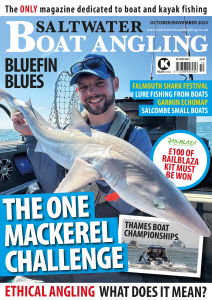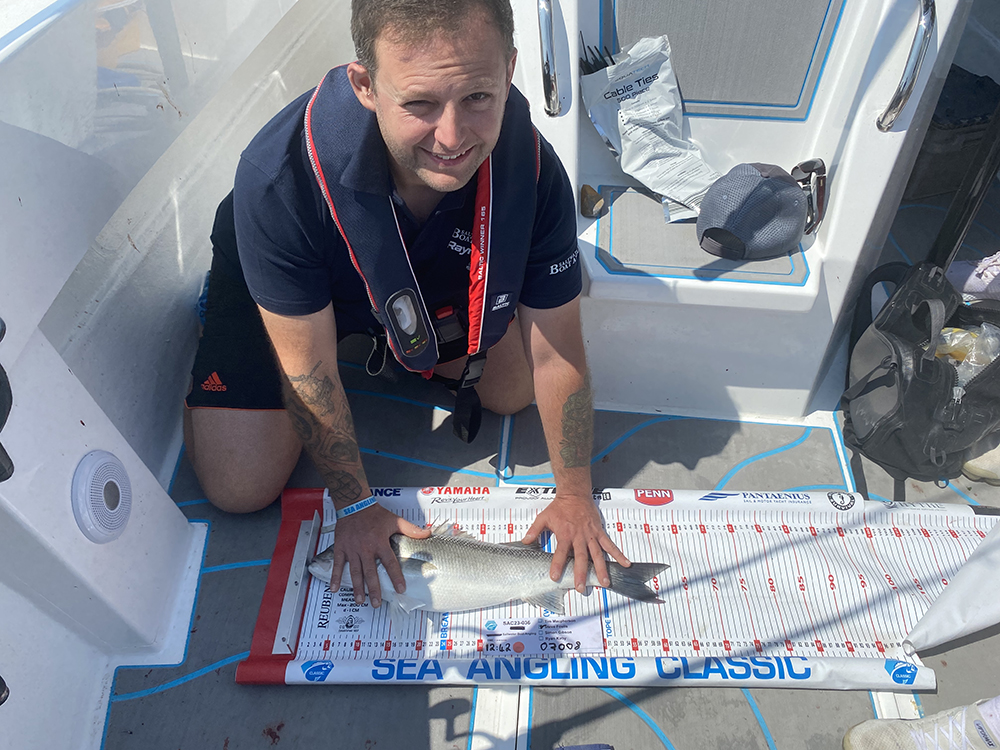After being approached by Marine Insurance specialist Pantaenius with an idea they had to run an article about ethical angling I started thinking a bit more about what this actually means.
Sea angling has come a long way in the 50 years or so I’ve been chucking leads into the sea. Being a biologist by training and a conservationist by inclination the way we treat (and treated in the past) the fish we catch has always troubled me – in past days we’d see pictures in the angling press of charter boats knee deep in cod, pollack and other fish. Most sea anglers would have little regard for the fish they caught using really crude tackle and roughly treating them when unhooking them (and I was not a saint in this regard). But at the same time I would hear a constant refrain that “there are no fish left in the sea” and “why can’t the government stop commercial fishing from emptying the seas of fish” and yet and yet….they thought it was fine to catch and take home 20 -30 stone of pollack or cod each and persuading themselves they weren’t affecting fish stocks. A lot of wrecks have been emptied of fish – mainly caused by commercial netters – but it’s absurd to think taking 100 stone of pollack off a wreck five or six times a summer per boat isn’t going to affect breeding stock.
Then there is the competition fishing sector…for years going way back into the 60’s anglers have been required to bring the fish they catch in competition to the scales in order to record their catch. Ditto for personal bests, club or national records. Now this kind of activity doesn’t have any meaningful effect on fish stocks but it does mean a lot of fish end up discarded – particularly inedible ones. A lot of fishing clubs and anglers would supply friends and neighbours with the fish they were bringing in for free – a laudable action but there is still a huge amount of wastage.
Things have changed, gradually. Sea anglers realised that if they were going to criticise commercial fishermen for overfishing then they had to get their own house in order, plus new generations of anglers become much more environmentally aware and realised that looking after the fish we catch (and release) was important. This was also partly as a result of the way freshwater anglers looked after the fish they were catching.
Ross Honey, who runs what is currently the biggest sea angling competition, the Sea angling Classic, puts sustainability front and centre of the ethics of his competition. The event has over 250 anglers taking part in one of the most heavily fished areas in the UK, the Solent and his view on sustainability and the ethics of sea angling are worth noting.
“Importantly we have linked our competitions to promote respect for the environment including safety on the water, shoreline clean ups and educational initiatives. All of our events are catch, photograph and release, with a strong emphasis on fish care and best practice responsible angling. All competitors are required to participate in a shoreline clean-up prior to the event.
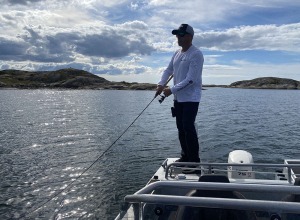
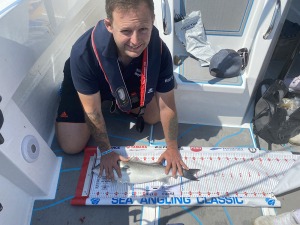
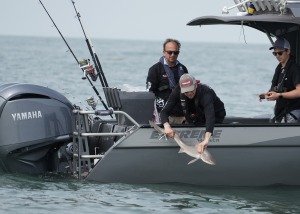
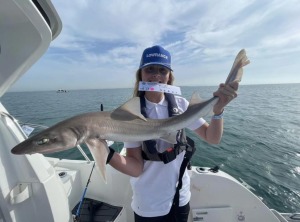
Darren McKell, skipper of Squidward one of the most prolific private angling boats in the UK is also a strong supporter of sustainable and ethical angling…
“We catch and release most of the time and generally only target fish that are in season. Bass, bream and mackerel are key in the summer, only earmarking the odd fish to enjoy on the BBQ. We only take those in line with Angling Trust minimum size limits.
Bass is a fish that anglers have really been at the forefront of introducing stainability measures. It’s good to eat and high on most anglers’ hit list but also gets a degree of protections. The UK minimum size is now 42 cm (16½ inches), with catch and release only in January, February and December for 2023. Anglers are limited to retaining three bass per day in all other months.
All responsible anglers will fish to UK Angling Trust size limits and only take what they will eat. What has changed over the years is the number of angling competitions where fish are measured, photographed and released. This has stopped countless dead fish being weighed in and discarded at the end of a competition. Most anglers like a quick photo and post it on social media. Social media has had a very positive effect in the way that anglers now portray the sport.
We recycle any leftover bait by salting it down for the next trip. We also recycle our old fishing lines plus dispose of unwanted line and used spools at local fishing tackle shops. To do the same, you can find your local drop off point here: https://www.anglers-nlrs.co.uk/recycling-locations.”
*With thanks to Pantaenius for sourcing these quotes for this article
[Break out box]
Talking of the Anglers Line Recycling Scheme this is one of the most successful initiatives introduced in 2018. A not for profit organisation started by anglers based in Sussex recycling bins are being provided in a variety of locations across the country. The scheme is managed on a non-profit basis and any excess money generated from the schemes activities is put into projects that benefit anglers, angling and the environment.
Anglers can just drop their discarded line into the bins and the line is taken away and used for recycling into other usable items. It’s a great scheme and is a great example of anglers taking the initiative and helping burnish anglers’ image as conservation minded and environmentally friendly.
{Highlight this section]
So, what can we do, as sea anglers to ensure we are fishing ethically with sustainably?
1. Practice catch & release: If you’re not planning to consume the fish, release it back into the water as quickly and gently as possible to ensure its survival. Use proper handling techniques to reduce stress and injury to the fish.
2. Use barbless hooks where appropriate: They’re easier to remove and reduce the potential for fish injury. You may end up losing more fish but they will inflict less damage on the fish.
3. Use circle hooks: Circle hooks are designed to hook fish in the corner of the mouth, reducing the likelihood of deep hooking and internal injuries
4. Minimize handling time: Its best practice to handle fish as little as possible to reduce stress and damage. It’s advisable to use wet hands or gloves when handling fish. Elasmobranchs are particularly vulnerable to damage when out of the water. Their cartilaginous skeleton is less supportive of their internal organs.
5. Use size appropriate tackle: Use gear that matches the size of fish you’re targeting. Using overly heavy tackle can lead to unnecessary exhaustion and harm to the fish.
6. Observe catch limits and angling regulations: Wherever you fish make sure you know the local and national size limits and any restrictions on number of fish. Also use your common sense if you are planning to take fish for the table, don’t fill up buckets and bin bags of fish – only take what you need.
7. Avoid fishing in spawning areas or during seasons: Be aware of the spawning seasons and areas for various fish species and avoid fishing in these areas during their reproductive periods. This helps protect the next generation of fish.
8. Dont target protected species: Make sure you know any protected species in an areas and marine reserves and respect no-fishing zones
9. Leave no trace: Bring back all your fishing gear, lines, and other waste. Discarded fishing gear can cause entanglement of marine life and contribute to pollution. Dispose of all your trash. Do not leave any waste behind.
10. Support sustainable practices. When purchasing fishing equipment and supplies, opt for products that are produced sustainably and have minimal environmental impact.
If we all continue to improve the way we fish and reduce our “footprint’ on marine ecosystems we’ll be doing what we can to maintain and improve the environment and fish stocks. Of course, boat engines are polluting and we do leave a lot of lead in the water. Until electric outboards are reliable for long distances and we invent a heavy dense material which dissolves over time in sea water suitable for getting our baits to the bottom these issues will still remain.
With thanks to Pantaenious for inspiring this article
